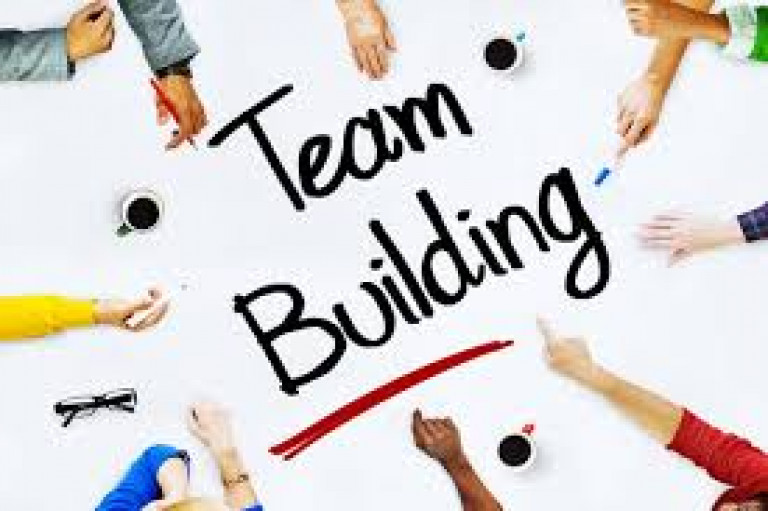In the competitive world of talent acquisition, conducting effective interviews is paramount to finding the right candidates for your organization. And part and parcel of that is finding the right interview questions to ask candidates.
Experienced HR professionals and recruitment experts use compelling questions that help them assess company and culture fit. They also use them to probe deeper into subconscious responses that tell you more about a candidate than they might be willing to say.
This blog post aims to provide you with a comprehensive guide to the right questions to evaluate candidates on various aspects during interviews, including personality, work style, and job-specific skills. By incorporating these questions into your interview process, you will be better equipped to make informed hiring decisions and find a good fit for your job openings.
So let’s dive in.
Why Personality and Work Style Matter in Hiring Decisions
While skills and experience are crucial hiring qualifications, personality and work style often determine an organization's success.
What’s the importance of considering these factors in hiring decisions and how they can contribute to your team's overall performance and dynamics? Here are some compelling reasons.
Hiring for Cultural Fit
Personality and work style have a significant role when HR and recruitment teams determine how well candidates will integrate into the company culture. Aligning your hiring decisions with your organization's core values and work environment can lead to increased employee satisfaction, better team cohesion, and higher retention rates.
One study published by Forbes showed that employees who fit into a company culture had lower turnover rates and higher job satisfaction. By assessing candidates' personalities and work styles, you can ensure they will contribute positively to your company culture and thrive in your unique work environment.
Improving Team Dynamics
The right mix of personalities and work styles can significantly enhance team dynamics, leading to improved collaboration, communication, and innovation. You want employees to complement each other's strengths and weaknesses. This way, they can work together more effectively and efficiently. By considering personality and work style in your hiring decisions, you can build balanced teams that bring out the best in one another.
Boosting Productivity and Performance
Employees who are well-suited to their roles will more likely have higher employee engagement and motivation, leading to better productivity and performance. Workplace happiness can improve work productivity by up to 31%.
Because increased job satisfaction often translates into higher productivity levels and better overall performance, both the company and the workforce benefit. Your company grows while your employees find more fulfillment at work. Everyone wins. By hiring candidates who fit well with the job requirements and your organization's work style, you can set them up for success and foster a productive work environment.
Reducing Turnover and Recruitment Costs
Hiring candidates that align with your team will stay longer, and thus help you reduce employee turnover and recruitment-related costs. That’s because employees who fit well within their teams and company culture are more likely to stay with the organization. This helps you save time and expense for recruitment and onboarding processes.
It’s said that turnover can cost a company 1.5 to 2 times the employee’s salary. Investing in a thorough evaluation of personality and work style during the hiring process can ultimately save your organization resources in the long run.
By prioritizing these factors alongside skills and experience, you can make more informed hiring decisions that benefit your employees and your organization.
Are you looking for the right tool to help you find candidates who will fit your company best? Personality assessment tools can help lower that cost for you. Companies use WorkStyle.io, a personality assessment and evaluation tool that HR departments and executives use to evaluate and onboard new hires.
You can also use WorkStyle as a team-building tool or workplace engagement program. Head over here to learn more about WorkStyle.
Top 20 Interview Questions to Assess Personality and Work Style
So let’s dive in and look at the best interview questions you should ask recruits during interviews. You don’t have to use all of them. Pick three to five and try that out. Happy selecting!
1. Can you tell me about yourself?
This open-ended question allows candidatesto share their background, experience, and skills, providing a foundation for the rest of the interview. It also helps break the ice in the conversation by starting with something light and familiar.
How this Question Helps Recruiters
This is one of the most common interview questions, it’s an important one to ask. Asking this question helps you find potential areas of interest or concern and get a sense of the candidate's communication style.
2. Why are you interested in this position?
This is one of the simplest and best questions to gauge a candidate's intentions. Asking this question helps you assess a candidate's motivation for applying and their understanding of the role. It also gives you a look into their career goals, new skills they want to learn, or work environments they want to be a part of at your company.
How this Question Helps Recruiters
When you ask this question, it’s easier to gauge their enthusiasm for the position and determine if they are genuinely interested in the work and company.
Of course, don’t take every answer at its face value. Try to encourage the candidate to be honest about their motivations, i.e. if they say they just need to make ends meet with a salary, affirm them that this is an important consideration.
3. Describe your ideal work environment.
A candidate's preferences regarding company culture, team dynamics, and work setting are all important factors in employee engagement and happiness.
How this Question Helps Recruiters
You can determine if the candidate's preferred environment aligns with your organization, ensuring that they’ll be happy in your organization or not.
Don’t underestimate the power of work environment expectations. If they don’t fit into your company values, it’s completely fine to move to another candidate. This helps ensure that you find the candidate who will most likely thrive in your organization.
4. What is your greatest professional achievement?
This question allows candidates to showcase their proudest accomplishments and demonstrate their skills. It also gives them the chance to showcase their best work and how that can add value to your company.
How this Question Helps Recruiters
Asking this question lets you see their ability to contribute to your organization and identify their strengths.
5. How do you handle conflict or disagreements with colleagues?
This might be one of the most unique interview questions to ask during a job interview. It might also arguably be the most sensitive. This question assesses a candidate's conflict resolution skills and ability to maintain professional relationships.
How this Question Helps Recruiters
Conflict is bound to happen in the workplace. It’s important to know from the onset how a potential hire will deal with that scenario. You can identify great candidates who can effectively navigate difficult situations and maintain a positive work environment.
6. Can you provide an example of a challenging team project you've completed? What was your role and how did you contribute?
This question evaluates a candidate's teamwork abilities and problem-solving skills. It also shows how well they cope with pressure,and help you find the best candidate for high-dtales roles.
How this Question Helps Recruiters
More importantly, we think this question also shows if your candidate can collaborate effectively and contribute to team success. Remember that there are no best answers to a question like this. People deal with pressure differently.
7. How do you prioritize your tasks when faced with multiple deadlines?
More than busyness, a hiring manager should evaluate your job candidate for productivity and prioritization skills. This question assesses a candidate's time management and organizational skills.
How this Question Helps Recruiters
You want to find candidates who can manage their workload effectively and maintain productivity. This question gives you a glimpse into this.
8. Tell me about a time when you had to adapt to a significant change at work. How did you handle it?
When asking this question, you get a glimpse of a candidate's adaptability and resilience in challenging situations.
How this Question Helps Recruiters
Ask this question if you want to see which candidate will thrive in a dynamic work environment and successfully navigate change.
10. How do you prefer to receive feedback and why?
This question explores a candidate's openness to feedback and their ability to grow professionally.
How this Question Helps Recruiters
Candidates who value personal development and are receptive to constructive criticism will naturally grow in an organization. Alternatively, someone who won’t accept criticism will not only be a liability to your team. It will also cause that person to stagnate in your company too.
11. What motivates you to perform at your best?
This question helps uncover a candidate's intrinsic motivations and work ethic. Try to get them to speak about other things than the normal answers, such as stability or security.
How this Question Helps Recruiters
You can identify candidates who are driven by factors that align with your organization's values and goals. This also gives you a snapshot of your candidate's true identity when they’re not in the workplace.
12. How would your colleagues describe your communication style?
This question assesses a candidate's self-awareness and interpersonal skills. Communication is one of the most crucial leadership skills, so this is definitely a good question to ask managerial candidates.
How this Question Helps Recruiters
You can identify candidates who can communicate effectively and contribute to a positive work environment. Moreover, this question will show a candidate’s ability to present their greatest strengths or weaknesses.
13. Tell me about a time when you took initiative to improve a process or solve a problem.
This question evaluates a candidate's problem-solving skills and proactive attitude. When a candidate takes the time to work on improving a process, they will most likely carry a growth mindset and could even be supervisory or management material.
How this Question Helps Recruiters
Asking this question shows you which of your recruits are resourceful candidates who can drive improvements within your organization.
14. What are your top three strengths that would make you an asset to our team?
This question allows candidates to highlight their strongest qualities and how they align with the role. Like question number twelve, this question also shows how they present their skills best.
How this Question Helps Recruiters
You can identify candidates who possess key strengths that can benefit your team and organization.
15. How do you balance work and personal life?
This question provides insight into a candidate's time management skills and ability to maintain a work-life balance.
How this Question Helps Recruiters
You want to find a candidate who can manage stress effectively and contribute to a healthy work environment. Normally, you also want team members who are good at boundaries for their and the company’s sake.
16. Do you have any questions for us?
This question offers candidates an opportunity to clarify anydoubts, demonstrate their research about the company, and express their genuine interest in the position.
How this Question Helps Recruiters
You can assess a candidate's engagement and fit within the company culture based on the quality and relevance of their questions. Be ready to answer questions about salary expectations, job roles, KpIs, and so on.
Supplementing Interviews with Personality Assessments
While interviews are a crucial part of the hiring process, you can’t always see all you need to know in the interview. That's where personality assessments can come in handy. By analyzing an individual's traits, these assessments can provide a more well-rounded view of their potential fit within the team and the organization.
We believe that predicting job performance and fit is crucial to the success of any team. That's why we created an assessments to provide better ways for identifying culture and job role fit. By identifying the strengths and weaknesses of each team candidate, leaders can make informed decisions about team composition and work allocation, resulting in higher levels of engagement, motivation, and job satisfaction.
Workstyle.io's personality assessment tools are invaluable for any team looking to enhance its hiring or onboarding process. They help recruiters make informed decisions about candidates. They also help managers assess team composition and work allocation, resulting in higher levels of engagement, motivation, and job satisfaction.
Sign up for a free trial today to see how Workstyle.io can benefit your team.
Frequently Asked Questions
How can I ensure that my interview questions are unbiased and inclusive?
To create unbiased and inclusive interview questions, avoid making assumptions about a candidate's background or personal life.
Focus on their skills, experiences, and behaviors related to the job. Be mindful of using neutral language and ensure that questions are relevant to the position and company culture.
How long should an interview last to comprehensively understand a candidate's personality and work style?
An ideal interview duration varies depending on the position and the number of questions you have. Generally, interviews last between 45 minutes to an hour.
This time frame allows you to ask a mix of technical, behavioral, and personality-focused questions while leaving room for candidate questions and in-depth discussions.
Can I rely solely on personality assessments and skip the interview process?
While personality tests for teams provide valuable insights into a candidate's work style and traits, they should not replace the interview process. Interviews allow you to assess the candidate's communication skills, ask follow-up questions, and better understand their overall fit within the company culture.
Combining both interviews and personality assessments provides a more comprehensive evaluation.
How can I improve my interviewing skills to better assess a candidate's personality and work style?
To improve your interviewing skills, focus on active listening, asking open-ended questions, and providing a comfortable atmosphere for the candidate to open up.
It’s always best to develop transparency and clarity in the interview process. Have a job description ready so you can better answer any questions the candidate might have about the opening. If they have a current job, ask them how soon they can start if ever you select them.
Practice your interview techniques, stay up-to-date on hiring best practices, and consider seeking feedback from colleagues or mentors. It's also helpful to familiarize yourself with the Workstyle.io personality assessments to better interpret candidate responses.
Final Words
Personality and work style are crucial factors to consider when making hiring decisions. While interviews are an important part of the process, they may not provide a complete picture of a candidate's potential fit within the team and organization.
If you're ready to identify the right candidates for your organization, we encourage you to start with Workstyle.io's personality assessments. Sign up for an account and experience the benefits of our comprehensive assessments for yourself!




